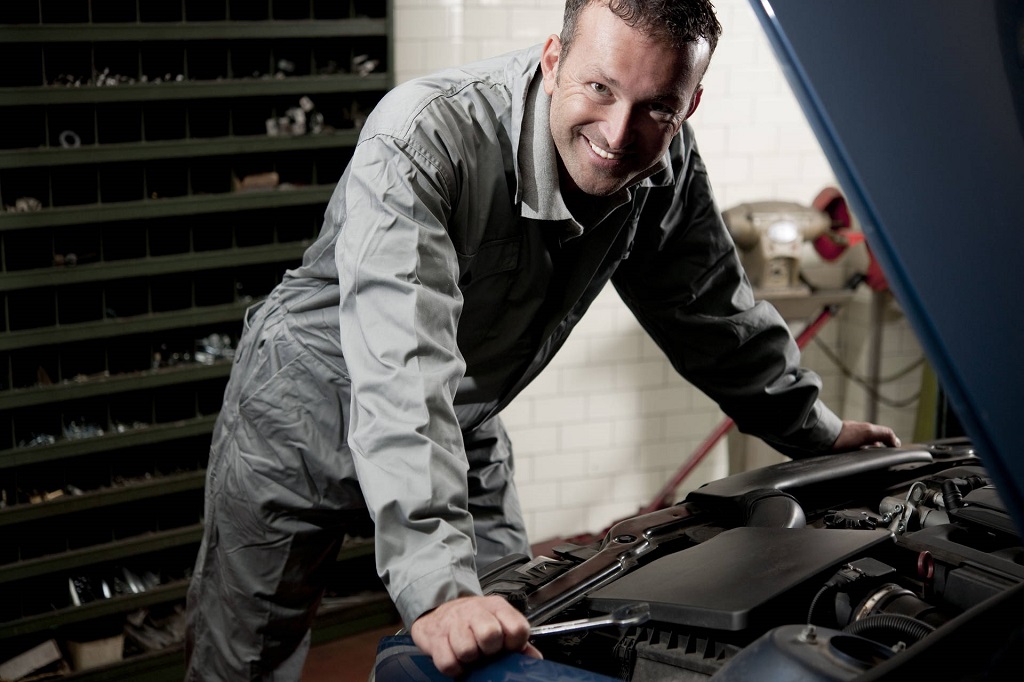
So, you've got a penchant for all things automotive, and you're considering a career under the hood? Perhaps you can't resist the unmistakable roar of a revving engine or find puzzling potential problems invigorating. Maybe it's the unrivalled satisfaction of taking a malfunctioning machine and bringing it back to life pulsates your heart. Look no further, as we're about to dive deep into the critical skills and traits you need as a mechanic.
Car mechanics play an indispensable role in our modern-day lives. Without them, our daily commutes, long-haul road trips, and even quick dashes to the grocery store would be challenging, if not entirely impossible. But what makes a mechanic genuinely successful? What hidden traits and unique skills separate the good from the best? If you're eager to know how you can forge a successful career as an auto mechanic, your curiosity is about to be rewarded.
In this blog post, we'll dissect the characteristics and skillsets vital for anyone looking to excel in this field. We'll dive into details such as accurate diagnostics, powerful problem-solving, stellar customer service, and becoming an absolute tech wizard. Let's steer this conversation onto the right lane and accelerate into the specifics!
Resolute Know-How and Technical Expertise
Ask any seasoned mechanic, and they will affirm that strong technical knowledge is the bedrock of their career. Mechanics should be capable of understanding complex mechanical concepts and components, as well as adeptly handling specialized tools and machinery.
Painting a clear-cut image of a problem in your mind requires a sound understanding of automobile technology. Entirely different from a theoretical perspective, mechanics need practical skills including the ability to disassemble and reassemble parts, understand electronic systems, and implement processes like welding and soldering.
Moreover, a great mechanic won’t crumble under pressure but precisely works well with their hands while keeping a keen eye on minor details. They tread the fine line between brute force and delicate precision depending on the machinery and the problem at hand.
Decoding the Symptoms: Diagnostics Skills
A successful mechanic is essentially a car doctor, able to identify and fix what ails a car using their diagnosing skills. The first signs of car troubles are not always in the bonnet; sometimes, they are hidden within inexplicable noises or quirky behaviours.
However, this aspect carries another dimension in today’s era – the knowledge of computerized diagnostic tools. As vehicles become more digitized, computer systems are becoming more critical in identifying the problem areas quickly and correctly.
Successful mechanics adept in diagnostics can save their clients both time and money, heralding their reputation and developing long-lasting relationships built on problem-solving excellence.
The Power of Communication
Mechanics do not just interact with machines; they also deal with humans. Clear, concise communication is an essential trait that ensures your customer understands the problem and possible solutions.
Great mechanics know the art of ‘demystifying' the technical jargon for their clients, helping them understand the issue without feeling overwhelmed. They can reassure customers, outline potential repairs, and explain costs which in turn foster trust and credibility.
Communication is also crucial internally among colleagues, workshop managers, and suppliers. The ability to convey information efficiently and succinctly fosters smoother operations and a more harmonious workplace.
Always on the Move: Adaptability and Continuous Learning
The automotive industry is a whirlwind of technological advancements and new trends. Successful mechanics are those who can keep pace with these changes and deploy their curiosity to learn about new technologies and techniques relevant to their work.
The mechanic who insists on sticking to paradigms of the past will soon be left behind. Embracing continuous learning, regularly brushing up on industry know-how, and keeping oneself updated widens your skillset and equips you to deal with a broader range of issues.
Commitment to Safety
Working as a mechanic entails risks with tools and machinery. A mechanic must be conscious of safety measures for both of themselves and others around them.
Following protocols, wearing appropriate gear, and having a keen sense of alertness all tie into this factor. Prioritizing safety and setting an example can make all the difference between a thriving work environment and avoidable accidents.
Understanding the Threads of Success: Pros and Cons
Like any other career, being a mechanic comes with its perks and challenges. From experiencing the joy of solving intricate mechanical issues to the thrill of working on different models, the positive aspects can be exhilarating.
However, the responsibilities involved are just as real. Issues such as physical demands, risk of injury, and the necessity to constantly update oneself may seem daunting.
Having a realistic idea of these points can help foster resilience and determine one's success in this field.
Conclusion
In an era of innovation and fast-paced developments, auto mechanics have a unique and pivotal role to play. They are the doctors who keep our metal beasts up and running.
To sum up, the key traits of a successful mechanic inherently fall into technical expertise, practical skills, communication, adaptability, commitment to safety, and a realistic understanding of the pros and cons involved. If you've got a passion for engines, a knack for problem-solving, and an unyielding willingness to keep learning, you're on the right track.
Finally, mechanics are not simply workers with greased hands and tools; they are artists and scientists, combining their skill and knowledge with a touch of creativity to keep our world moving.




